Here is a survey about YOUR future when you get older: How do you see the second half of life?
Please go to https://de.surveymonkey.com/r/8NZQ3XV
OUR FIRST COMMUNITY LIVE CONVERSATION – about AGEING
Hear our presentation at the INTEGRAL EUROPEAN CONFERENCE in Hungary,
May 6th, 2016
We were pleased and grateful to witness a lively interest in the topic.
You are invited to join the discussion by filling in the survey above and by joining our Facebook Group http://bit.ly/integralageing
Hear our pre-conference talk about what we will be talking about on May 6th, 2016 in Siofok/Hungary.
Conscious Ageing Panel Discussion

SEASON 6 EPISODE 4
Conscious Ageing – a panel with Ann Roberts, Monia Fruehwirth and Firehawk

HEIDI´S INTRO
The CONSCIOUS AGEING series was the result of Mark’s realisation that he might have other 20-30 years to live. He didn’t feel like doing the classical life of a person in retirement, he was inspired to know more about how other people dealt with the “third act” in their lives.
In 2014 we started the live broadcasts of the Wisdom Factory, first about topics around integral theory and practice, and from 2016 especially on “Conscious Ageing”. Mark, for the first time in his life had stepped up on the stage of the second Integral European Conference and presented his insights of how we age, up the spiral.
We did 4 seasons together, the fifth in spring 2019 I did alone in honour of Mark’s passing in June 2018. I had taken the commitment to continue with the work which was at Mark’s heart, and now, with season #6, I am happy to welcome more contributors, some of which have already appeared in the Wisdom Factory.
How to age consciously – this is the topic of our panel discussion. And how can we support others in this quest.
Panel Conscious Ageing 2019
0:00 Heidi Intro
1:58 Firehawk: a man among women. His spiritual journey. About his collaboration with Ann in the attempt to bring people together to become more fully human
4:30 Monia Fruehwirth. Her life and spiritual journey. Gerotranscendence, in Vienna. “Listening society”.
6:33 Ann Roberts. About meeting Firehawk and the body of teachings of “Earth Wisdom” which made her feeling home. A passion for consciousness, Ken Wilber’s work, Tom Christensen and Spiral Dynamics. The listening society and the daily evolver. Active wisdom: explore this period in our lives
9:45 Heidi: How she decided to continue the series Conscious Ageing.. Getting married, having children and ageing: You are expected to know how that works, no preparation normally available.
12:00 How do we age consciously? >> Firehawk: consciousness from mid-30ies: A lasting difference of what you do for the world? >> deep dive into consciousness and possibility of relatedness. The woner of finding consciousness! Understanding his own elderhood AND how reconnecting our elderhood with younger generations? Seeing, knowing, challenging each other.
17:50 Ann: How do indegenous culture see consciousness. An unbroken tradition of the teaching, from 1996 she feels opening up her understanding, embrace complexity, stages of development. “The cosmic Hologram” by Jude Currivan: consciousness creates matter. Information is on the center of creation.
20:55 Much research about ageing is about loss. Ann is interested in the time between leaving work and very old age where we can move out into life. Conscious ageing: dance of awareness, deliberateness, commitment to make the most of it.
22>:06 Monia: She found the maps of wilber around 2000. She became aware of ageing when she noticed that she was mostly the oldest, doing strange things (like Samadi tank and conversation groups). Not the typical grandmother. Trying to be an authentic person, reliable. Children development can be enjoyed by grandfather, what he couldn’t do previously. Book: Raymond Fismer “Ein ganzer Mann”. Include the feminine side.
26:02 Consciousness is creating reality. A creator of what is missing. How do you get together being in 21st century and Earth wisdom? What language do you use?
27:30 HO. “I have heard you” > Ann: during business life: she had the map in her consciousness, without too much declare it openly. After retirement she would be explicit about the teaching. The language? – speak to the listening of the other. Simulcasting = speaking to different levels.
30:02 Firehawk: what if we held the digital space like Zoom as sacred as the earth? The planet has created whole and complete structures. Today: not an either-or. Touching the sacred today. Creating the WE. Dance with 21st century and honoring the previous ones.
33:12 Monia. We-space for women. One living consciousness. What language to use in a we-space and how it is different from every day language
35:30 Heidi: a technological form of telepathy. Maybe a pre-stage of rediscovering it. The theory of everything and the akashic field by Erwin Lazlo. I need to understand, things need to make sense. Maybe in this part of our life we can come to these new views of the world.
38:15 Firehawk Understanding by language. Here the conversation is more nurishing than any power-point, laid out stuff. This space allows listening. Elderhood has the promise for the change of consciousness.
40:45 Heidi: the co-creative space: putting pieces of the puzzle together.
41:40 Ann: Her transition after work life with Mary Catherine Bateson. An Active Wisdom Wheel (see also the first conversation) “My well being”
43:25 Healing of personal and collective dramas. “My development” Steven jenkison: “Come to age”/ Charles Eisenstein: Living between 2 stories.
45:50 The north: “My vocation”. Barbara Mark-Hubbard: Vocational arousal, super-sex for co-creation, meaningful action in the world. The deepest heart’s desire. Simon Senex: “Start with why”
48:55 The east: the completing place, the freedom for new adventure. Why am I here? Manifestation in co-creative projects. An expanded time to be and listen. Reconnection to the Earth wisdom, freedom as opposed to fill the days with medical prescriptions and worries. We are sacred human beings, we are whole, so contrary to what we were taught, which was mostly critical.
53;07 Heidi about Dementia, integrally seen, by Bettina WIchers
53:40 Monia about freedom. What is freedom? Again suggestion of the book “The listening society”: free FOR something.
55:39 Speak across, bridging the gap. Monia about her peer group trying to find a language to speak with red. Who talks to you from what level? An example. You cannot talk on “green” to a “red” person. We-space allows intuition to arise.
58:28 Firehawk: appreciation for the conversation. A story about an eskimo. Asking questions instead of being told what to do. Listening for the question to ask.
1:00:30 Heidi: bringing people together. Thank you.
1:01:55 Ann enjoyed the integral conversation. She feels Mark’s legacy, where we are sitting now.
1:03:40 The next course with Ann and Firehawk webpage.
November- dreaming time in winter time.
.
CLICK ON THE LINKS BELOW FOR THE BOOKS RECOMMENDED
Ulrike Hofmann-Schüll: Älter werden

SEASON 6 EPISODE 3
September 2019
Ich werde gerne älter – mit Ulrike Hofmann Schüll


HEIDI´S INTRO
Ich werde gerne älter?
Als Kinder wollten wir immer so schnell wie möglich älter werden. Das Gute schien immer in der Zukunft zu liegen: “wenn ich groß bin, dann…”. Für die meisten Menschen ändert sich das,
wenn sie 30 werden, spätestens dann mit 40. Dann beginnen sie, sich Fragen zu stellen über den Sinn dessen, was sie gerade tun, ob sie nicht lieber doch etwas anderes hätten tun sollen, wie si die Zeit besser nutzen könnten usw. Denn die Zeit scheint sich zu verändern. Plötzlich ist sie nicht mehr unbegrenzt, und manchmal beschleicht uns schon da die Ahnung, das wir vielleicht nicht ewig so weiterleben könnten wie bisher. “Midlifecrisis” wird das genannt, wie eine Krankheit, die schon wieder vorüber gehen wird.
Aber von da möchten die meisten Menschen nicht mehr älter werden. Wir Frauen beginnen die Haare zu färben und die Kosmetikindustrie zu fördern, weil uns versprochen wird, dass wir keine Falten im Gesicht bekommen, wenn wir nur genug von all den Cremchens kaufen. Jung bleiben um jeden Presi, oder zumindest jung aussehen – und das ist ja nicht unbedingt dasselbe.
Ulrike Hofman-Schöll, der Gast im Interview dieser Woche hat beides verwirklicht: sie sieht jung aus und sie ist es auch, trotz ihres Geburtsdatums. Sie wollte immer älter werden, als Kind, in der Mitte des Lebens und jetzt. Oder man kann auch sagen, dass sie die Gaben des Älterwerdens in jedem Alter geschätzt hat und noch schätzt. Sie hatte ihr Leben lang einen offenen und kreativen Mind, sie konnte Körper, Geist und Seele gut in Verbindung halten und sie ist beständig neugierig darauf, was Ihr das Leben sonst noch bringen wird.
Ulrike ist eine gute Inspiration für alle, die dem Älterwerden und dem Alter eher skeptisch gegenüber stehen. In unserem Gespräch erzählt sie, wie sie immer neue Begabungen und Fähigkeiten entdeckt und ausgebaut hat, wie auch ihr “Rezept”, dem Älterwerden furchtlos in die Augen zu blicken. Viel Spass beim Zuhören.
ÜBER ULRIKE HOFMANN-SCHÜLL
Ulrike war bereits in der Wisdom Factory vertreten mit einem Gespräch auf Englisch, über das Leben als kreativem Prozess. Besuche diese Seite, um mehr von über sie und ihre Arbeit zu erfahren.
0:00 Intro Heidi
1:00 Ulrike stellt sich vor: Immer neue Ideen, ein erfülltes Leben
2:10 Geschichte aus ihrer Kindheit, vom Schulanfang und überwundener Krankheit: eine kluge Frau werden! Was passierte, war goldrichtig
5:15 Auch schwere Erfahrungen bringen positive Einsichten und Erfahrungen. SIch nicht zu genaue Vorstellungen von der Zukunft machen.
/:05 weitere Beispiele: ihr Entschluss, nicht zu studieren, was sie gar nicht sagen wollte. Die Ablehnung durch die anderen, hat sie in ihrem Beschluß bestärkt, Goldschmieding zu werden, das was sie machen wollte.
9:05 Als Unstetigkeit betrachtet, wo es ihr nicht lag. Zu dem kommen, was man machen will, auch ohne Unterstützung. Mit Auseinandersetzung und Herausforderung kann man zur Sicherheit kommen.
12:00 Der Tanz durchs Leben und Kleidung durch Farben, eigener Stil, nicht, wie es der Mutter gepasst hätte. Eine wissenschaftliche Untersuchung: das tun, was sie als 20jährige taten: das biologische Alter , 10 Jahre jünger. Ulrike fühlt sich bestätigt.
14:50 Kinderwünsche zu verwirklichen hält sie jung. Lange Haare und Hund.
16:20 Was heißt “alt sein”? Wir fühlen uns als jung, andre sehen uns alt. Die Männer auf der Tagung:
18:10 Altersbonus?. Erfahrung von Ulrike mit Jüngeren. Natürliche Autorität.
19:45 größeres Selbstvertrauen gewonnen durch das Organisieren von größerem Heilertreffen. Bei sich gelandet, trotz Verantwortung und Stress, dadurch, dass sie das geschafft hatte.
22:30: Man kann viel mehr, als man denkt, man muß es nur ausprobieren. Heidi’s Weg zur Gesangslehrerin. Man braucht Herausforderung, um wachsen zu können. In jeder Altersstufe. Nichts-tun ist sehr schlecht, wenn man glücklich sein will.
25:00 Über das Heilertreffen, das Ulrike organisieren “musste”. Das ende der Schülerschaft. In die Rolle gegangen, für die Gemeinschaft zu arbeiten. Ein Initiationsprozess. Älterwerden = man hat wieder eine Stufe genommen. Bestimmte Abschnitte sind vorbei.
38:35 Würde, die der Mensch für sich erobern muss. “In Würde altern”. Die Dinge, die sie getan hat, haben ihr Würde gegeben. Hat das mit dem Körper zu tun und Körperhaltung?
32:10 Entschuldigungen mit “Alter” ist nicht gut. Langsamer vielleicht, aber auch sorgfältiger. Reframing von Verlust zu Gewinn.
33:25 Heidi Geschichte: was willst du denn, in Deinem Alter!) Ulrike: eine Geschichte von 2 Frauen in einer Stammeskultur, die zurückgelassen wurden und dann den Stamm gerettet haben. Beenden von nicht-lebenswertem Leben?
36:40 Auch im Alter kann ich etwas tun, was für die Umgebung lebensnotwendig ist.
37:40 Wie auf das Alter vorbereiten? Viele alte Leute vergiften sich durch zu viele Medikamente, auch durch schlechterem Stoffwechsel. Tipp: viel atmen, intensiv, Hecheln, damit der Sauerstoff ins Blut kommt. Entzündliche Prozesse verhindern: Honig + Curcuma, antibakteriell.
42:20 Darmprobleme und Curcuma? Keine Verschreibung, selber die Dosierung ausprobieren.
44:00 Was man vorbeugend tun kann. Auch Singen, keine Angst beim Tönen, Obertonsingen. Buch: “Die Entschlüsselung des Alters” (Elizabeth Blackburn) Über die Telomere, biologisches Alter. Kreativität hält Telomere fit. Verbindung mit allem. Hinspüren in die Verbundenheit.
49:30 Ulrike’s Beispiel dieser Erfahrung, Kraft und Einsicht. Tiere sind wichtig, Streicheln. Tiere in Gefängnissen. Heidis Beispiel mit einem schwererziehbaren Kind.
51:25 Waisenkinder im Altersheim. Wahl-Oma. Zusammenfinden der Generationen, was kann man tun? Mehrgenerationenhäuser, aber Krankenkassen zahlen nicht für private Projekte wie Alten-WGs. Wir müssen auch politisch aktiv werden. “Ältere Menschen, vereinigt Euch!”, das gilt für ALLE, es nicht den Politikern überlassen. Uns treffen!
55:25 Heidis Geschichte über den Entwicklungsgang ihrer Mutter. Weitermachen hält uns am Leben! Nicht aufgeben, auch wenn es manchmal schwierig ist.
57:20 Ulrike ermutigt, sich Gesellschaft von Menschen zu suchen, die im eigenen biologischen Alter sind. Anregungen erhalten, kein traditionelles Rentnerdasein führen.
59:00 Ulrike ist inspiriert, selbst Videos und Gespräche über Heilung zu führen, dank dieser aktuellen Erfahrung
1:00:20 Conscious Ageing – Älterwerden ist schön. Ulrike fragt die Zuschauer nach Feedback und Vorschläge. Bitte Hier schreiben oder sich direkt an Ulrike wenden auf www.tiger-gold.de
AUTHOR RESOURCES
Ulrike’s Webseite www.tiger-gold.de
Structures for the third half of life in the US with Bonnie Vallette

SEASON 6 EPISODE
September 11th 2019
Structures for the third half of life in the US with Bonnie Vallette

HEIDI´S INTRO
When we are young, we are not very interested in thinking about old age and how we will be able to live then. We postpone the topic until we are getting nearer and nearer and the thoughts appear: what can I do when…? Who will take care of me, if I can’t do anymore xyz? And when we enter into retirement, we are confronted with the reality that the money we get as a pension probably won’t take us very far.
Unless we had a really good job and paid a lot into the pension fonds, we will realise that it is difficult to keep up the usual life style. Old people living near poverty has become almost normal in the last few decades, and it will get even more “normal” for future generations who live in total insecurity regarding jobs and social security already. Who will take care fo the old people who have no family able to take care for them?
The question is answered differently in the different countries of the world. The lack of funding seems to be an all pervasive phenomenon. Old people are no investment, in a capitalist society they are worthless and left to the compassion of private people and, yes, the churches. Thanks God we haven’t demolished them yet, totally, by means of the increasing atheism in the world. They have an important function and we better recognise that in time!
Our guest this week, Bonnie Vallette, got interested in the topic eldercare long before she reached the interested age herself. She is very active in trying to create a better situation for the older population, at least in her community. In our conversation she explains how the systems work in the US, especially in her area, and what she is doing and initiating to better the life of those who, at the end of their life times, are unable to fight for themselves. If you have questions how you can collaborate, or just, where to go when you have specific problems, do contact Bonnie:email: BMLVallette@netscape.net Phone: 1.614.226.7247.
ABOUT BONNIE VALLETTE
Bonnie Vallette is a generalist, weaver, and networker. She brings people and ideas together in new ways – using concepts like disagreeing in love and polarity management, in community building and igniting culture change, and by utilizing skills learned in Eldercare (Person-Centered, Hospice, and Trauma-Informed Care) and the Authentic Relating and Integral movements, all to help facilitate and deepen difficult discussions with an eye toward win-win resolutions. Discovering Spiral Dynamics gave her a map to hold diverse interests and lean into her gifts in new ways. Underpinning all Bonnie’s efforts are a lust for life-long learning, body- and breath-work, and daily meditation.
Bonnie has a Bachelor of Science in Business Administration with an emphasis in Marketing from The Ohio State University. She has worked in retail, business banking, as a church administrator, nonprofit fund development, and in Eldercare. Bonnie received her Level One SDi certification from Don Beck in Texas (Spring 2018), and Level Two SDi certification from Rica Viljoen in South Africa (Summer 2019).
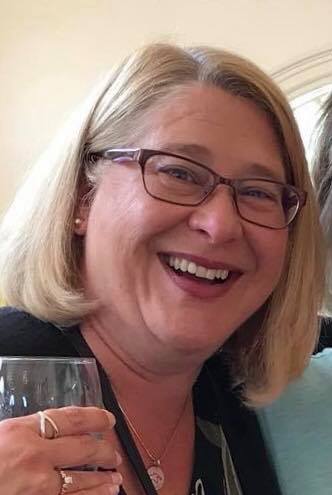
0:00 Intro Heidi
0:50 Bonnie introduces herself, works in elder care, non-profit structures
2:22 Elders need to stay at home to get the maximum benefit of payment. Elders stay alone and they connect with them and help with everything.
4:12 Bonnie gives a historical overview of payments for elders etc. Before children could stay in the community and so the elders were connected with family. Medicate and medicare payed more than the actual cost of nursing homes. Now lower payout for nursing home and less staff. 10.000 people a day are retiring and enter into medicare which is not enough funded. Community action is required and important.
8:35 Who is in nursing homes. Assisted living. People need to provide their own money. Savings of 5000$ or less: they can supply for medicate which they can keep, not needing to use their private money to pay for care. They are even less supported and nursing homes take only limited numbers of these.
11:55 The work of Bonnie WFCA: senior centers, services, affordable services, Her goal: insure mechanisms in place that elders are helped to resolve their dilemma.
14:15 Funding. Hopefully churches, volunteers, foundations
15:40 Younger people work for free and they get the support back when they need it? “Kindness” initiative: college students for their volunteer hours, also church members. “The circle of caring” Heidi’s ideas of mutual support
17:55 App for community service hours. – the future of care? Agencies for Aging for people who are completely alone. You can become an advocate for them.
20:00 Heidi on the system in Germany.
21:20 Heidi on “Reinventing organisations” by Frederick Laloux Nursing differently organised in the Netherlands. When will we take over such a successful model
24:15 Bonnie on leadership. Eden philosophy: People who are doing the direct care know best, start to be empowered and speak to the leadership in the care facilities. Flatening of hierarchy is important, as well as non-prifit model. All stakeholders need to be included.
56:50 People in direct care are normally not heard in the hierarchical system. We need to set the system upside down.
27:50 People taking care privately for family members are left out and without money when the cared for person dies. If you haven’t payed into the system you get no pension. Also in America! Examples.
31:10 Childcare, yes.- elder care: where is it? What do we need to do to change that? In next 5 years there will be more people over 60 than under 17. Is it fear of getting old oneself to push the topic far away? Also that families are not together anymore. Grandparents for hire?
34:00 Learning from each other. We want to share our understanding and learning, often younger ones don’t ask but prefer to re-invent the wheel and make the same mistakes again.
35:45 Is their the tendency of generations coming back togather? Share the rooms of college students and nursing homes as an option. Both benefit greatly.
37:10 “Integral sageing” in Bolder and on Facebook. Bonnie about Integral and Spiral Dynamics . Appreciation for the quadrants which gives us a better way to work through the issues. Inner leadership aspect: Resources help to find out about and gain clarity oneself before going into the group. Examples.
40:40 Planning of the group? Facilitative leadership for networks. Integral sageing as a good way to find out inside what is going on, dealing with our angst, getting clear about own focus and becoming compassionate with people on their own journey.
43:25 Fear of dying? Bonnie: educating caregivers “Trauma informed care” – traumas come often up before dying. Caregiver is confronted with finding out the need of the person: mostly talk and touch. Examples. 100 questions of the “Trauma informed care” Difficulty for the family to del with the trauma expressions of people. You need also selfcare, but leaving and send those people away is not really nice. We need to change our culture to see and handle challenging situations.
50:25 Bonnie’s story: how the father handles the great depression. Mum wouldn’t speak about her difficulty. When elders can speak about ntheir dramas the suffering of the world could be alleviated. Talking about the pain can help! Tell your life story!
Heidi talks about the story of Frank Magwegwe we listened to in South Africa. Caritas Uwizera, her survivng the genocide in Rwanda. Listening to the story of others let you understand that you are not alone. Telling ones story inspires others.
54:30 “The Elderly Listening Club”. Tell your story, connect with us. Conscious Ageing series 6
DOCUMENTED LINKS:
Centers for Medicare & Medicaid: https://www.cms.gov/
Central Ohio Area Agency on Aging: http://www.coaaa.org/ (see especially the Volunteer Guardian Program)
Reinventing Organizations: https://www.reinventingorganizations.com/ with access to research links: http://www.reinventingorganizationswiki.com/Main_Page
Great Britain now has a minister of loneliness: https://www.smithsonianmag.com/smart-news/minister-loneliness-appointed-united-kingdom-180967883/
Servant Leadership: https://www.forbes.com/sites/forbescoachescouncil/2017/07/19/servant-leadership-how-to-put-your-people-before-yourself/#16d8596766bc
Eden Alternative (Elder-Centered Care model): https://www.edenalt.org/
Thriveability: https://www.linkedin.com/pulse/sustainability-dead-long-live-thriveability-olivier-giraud/
Eldercare stipend for family members offering care: https://www.consumerreports.org/elder-care/how-to-get-compensation-when-caring-for-aging-parents/
College students living in Eldercare residences: https://www.aarp.org/livable-communities/housing/info-2019/student-housing-retirees.html
Integral Sageing in Boulder, Colorado, USA: www.facebook.com/groups/integral-sageing
Integral movement: https://integrallife.com/what-is-the-integral-movement/
Spiral Dynamics Integral: http://spiraldynamicsintegral.nl/en/
The Churning: Inner Leadership: http://www.finnjackson.com/books/the-churning/
Getting comfortable with death early in life: https://deathcafe.com/
Hospice & Palliative Care: https://fairhopehospice.org/
Trauma Informed Care: http://www.traumainformedcareproject.org/
Adverse Childhood Experiences test: https://www.cdc.gov/violenceprevention/childabuseandneglect/acestudy/index.html
Article: Millennials The New Caregivers
Heidi and Mark with Ashton Applewhite, leading activist against ageism
Heidi in conversation with Rica Viljoen
Ann Roberts – an inquiry into elderhood

SEASON 6 EPISODE 1
September 4th 2019
Active Wisdom: An inquiry into elderhood

WITH ANN ROBERTS
After retirement – Ann calls it “refirement” – she went back to University. For her Masters in Applied Social Science she interviewed grandparents about the flow of love across the generations. The insight and learning she gained has led her to be actively engaged in an inquiry, with others, into Elderhood.
ACTIVE WISDOM is the term that applies to her work which aims to create a community of people who are curious about their Elderhood and wish to inquire this new stage in their lives.
HEIDI´S INTRO
We are kicking off season 6 of CONSCIOUS AGEING with Ann Roberts who already, 2 years ago, had inspired us with her life story and her work in ACTIVE WISDOM. Yes, once upon a time, old people were considered and appreciated for the wisdom they had gathered through their long life time. Today, their wisdom seems to be somehow unacknowledged or rejected by a hyper active youth culture. Young is good, old is bad. So instead of learning from other peoples’ experience and instead of learning from history, the wheel gets invented anew again and again and the same mistakes are made over and over.
If elders have no natural place of respect and appreciation in our societies, what to do? Our generation of Babyboomers is experienced in having new ideas and of not accepting societal norms which would put them into the corner of drawing back and be silent. If nobody asks us for our wisdom, we need to step up ourselves and offer it in an appropriate way. As elders, we can use this position to wisely offer our knowledge to the younger generations to give them the trusted help they may need to get oriented in a confusing world. Listening to them and gently guiding them would be the future task of elders who have developed themselves into mature human beings.
This time we are talking about her project of creating a network of people to inquire into elderhood. She starts with a couple of colleagues and offers a 3 months course, a place where people meet live on video and explore together important questions about elderhood. It is not about giving advice or selling solutions. It is about digging deep into the challenges and possibilities which arise when getting older.
ABOUT ANN ROBERTS
ABOUT ANN ROBERTS
After a 30 years career in organisational, team and personal development Ann ‘retired’ from Police Scotland in 2015 from her role as a Leadership Development Consultant.
As she prepared to leave, she realised there was more she wanted to achieve, and so the following September she undertook a Masters in Applied Social Research. She enjoyed the experience, particularly being with young people who helped her find her way in 21st Century academia.
At that time, Ann and her husband had three frail parents in their 90’s, adult children in their 20’s/30’s as well as a growing number of grandchildren. It was challenging time for Ann as she experienced the stretch that many of the baby boomer generation have in supporting different generation at the same time as well as her studies.
Ann’s research led her to the work of Mary Catherine Bateson who proposed a new stage in Erik Erikson’s adult psychosocial development model that she called “Active Wisdom”. This new stage sits between the Erikson’s original mid-life time of Generativity and that of Old Age. This new stage arises due to the healthy longevity that many of Ann’s generation now enjoy.
Mary Catherine describes the “virtue” of Active Wisdom as being about sharing insight gained from rich life experience, combined with new levels of experimenting, travel, study, and a refreshed interest in giving back to others. The “vulnerability” of this stage can be an attendant loss of identity that leads us to withdraw rather than whole-heartedly engage with new possibilities.
Finding this research was pivotal in helping Ann to understand this stage in her life and led to her passion to explore this concept in a new on-line programme called Active Wisdom: An Inquiry into Elderhood. Information on this new program can be found at http://bit.ly/AW4HOME
0:00 Intro Heidi: Active WIsdom: an inquiry into elderhood
1:02 Ann introduces herself, talking about “refirement”
1:40 Heidi’s comment on not needing to work for income
2:30 Heidi asks Ann about her present activities
3:09 How Ann felt after retirement: she found herself in the book: Mary Catherine Bateson: “Composing a further life”, a new stage after retirement “active wisdom” – post-work parenting phase.
5:20 Retirement and purpose of life
6:15 Ann: the “Sandwich generation”, people with ageing parents and children, even one generation more! Ann talks about how she got stressed by needing to take care for elderly people instead of the grandchildren. Dealing with many challenges.
8:32 “Elderhood” – Baby boomers: “Pig and python beneration”. A resourceful generation which has a lot to give back.
10:00 Ann talks about her activity around active wisdom: Linkedin group, Facebook group etc. A program of inquiry into elderhood. THe Series CONSCIOUS AGEING inspired her.
14:00 We need realism about ageing, not to be over-positively ignoring and neither be controlled by the symptoms. But don’t believe to your inner voice who wants to tell you that you are getting old and gets you into fear and depression. Body needs movement
16:25 Ann talks about their program: One module: How do I care for my wellbeing?
17:20 Women were educated to neglect themselves and care for others. Example: Heidi’s mother
18:25 Ann about her interviewees: they did conscious choices, difference between . grandmothers and grandfathers. Some created new initiatives and ways of being with the family.
21:25 Second step: “My development”, personal development as adventure in that age. W>hat do I know and can contribute? Where is your edge of learning? An inquiry in a co-creative space. 3. Module: My vocation. Vocational arousal (Barbara Marx Hubard).
25:20 Mark as an example, our story
28:00 Ann: enjoying what we are doing: Ann and her teaching partner: reaching out far and offering something which can make a difference. Technology is becoming easier and so it is accessible for most.
30:25 FInal piece “my freedom” . Virtue and vulnerability of the stage of Active Wisdom. Leaving a legacy. What was the gift of the life of mother, father, my country? BEing in community.
32:40 Connection via Internet. We are not alone! Mutual support and encouragement.
34:50 Ann: others bring new perspectives. Worry can change into more resourceful considerations.
35:50 Co-creation instead of fights. Asserting positions ask agreements and disagreements. Co-creative space is about asking questions and not uttering statements. We need rules of agreement to stay on purpose. Open to not knowing and new perspectives.
38:10 Heidi’s experience with co-creative spaces: listening is the key. The cisl happens when something new emerges. A different way of being together this way is nurturing and enlivening. Experiencing the field and listening and feeling, enjoying oneself. Be fully who you are, not holding back, not being too forward, or being too much holding back. A non-judgemental space.
43:05 Ann: the stringing of the beats: A circle of sharing, Speaking until you are complete, others listen and say “hoh” at the end. A protocol can hold the space, especially in online connection.
45:15 Heidi asks about the course. Ann explains the procedure of the course. It is all about relationship and questioning in relationship with others.
48:50 Heidi: younger people often want to re-invent the wheel: Do we more easily learn from each other? Ann: ask questions also to the young. They teach us much, so can we listen first?
50:20 We thought we knew. Now we know that we don’t know. Not needing to know everything.
51:21 Ann shares her experience with the young doctors when she was ill. Surrender to their expertise was scary. Finding the balance, still asking the questions: why do I need this injection? FInding the middle ground of the opposites = the wisdom. A broader perspective, no need for “black and white” = healthy elderhood. Right or wrong is about is it useful or not, no absolute truths. Finding the appropriate language to communicate what we know to the others.
55:10 We did a co-creative conversation! Appreciations
56:00 Website: Active Wisdom email: ann(at)ctew20.org
CLICK ON THE LINKS BELOW FOR THE BOOKS RECOMMENDED BY Ann Roberts
Counscious Ageing and the IEC Conference in Hungary

BLOG – CONVERSATIONS THAT MATTER
Conscious Ageing and the IEC Conference in Hungary
HEIDI & MARK AT THE IEC CONFERENCE
It is today that the Integral European Conference (IEC) ends in Siofok at Lake Balaton in Hungary, and tomorrow the “Magical Tour” through Hungary starts which brings people to exquisite selected places and experiences in that country for three days.
It is a wonderful experience, the conference itself and the tour. People who meet there are different, the contents are different, the atmosphere is different than on every other conference or group event I have ever been so far. Mark and I went to Hungary every time since 2014, to be there and to bring our contributions.
In the last conference Mark (and I) spoke about “CONSCIOUS AGEING”.
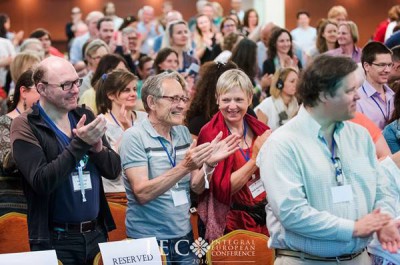
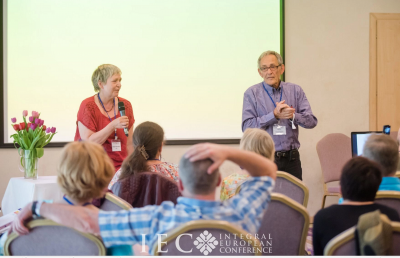
WHAT WE DID AFTER THE LAST CONFERENCE
After the conference we started our broadcast series CONSCIOUS AGEING. We organized about 40 conversations about “Conscious Ageing” from many perspectives and, this time in Hungary we wanted to talk to you about this initiative, about who the participants were, what topics came up and how, overall, it went. We also wanted to extend the invitation to you to be our guest in the next season of broadcasts, planned for autumn 2018.
After 4+ weeks of hoping that we would be able to come to the conference, we decide that we cannot participate due to Mark’s state of health. The initial weakness and coughing has revealed itself as metastasising lung cancer.
We are now called to walk our talk, to make treasure of what we learned from our guests and to face the challenge in a conscious and 2nd tier way. So far we are good and we pray that we won’t lose our humour and love even if things proceed in a way which puts an end to our relationship as human beings on earth.
We would like to ask you to include us in your meditations and prayers and, if you see a possibility, to come and see us in Paradiso Integrale in Italy, live or via internet to stay in contact and exchange “knowledge, experience and wisdom” – the slogan of our Wisdom Factory events.
OUR GREETINGS TO HUNGARY FOR 2018
OUR TALK IN HUNGARY IN 2016
VISIT OUR OTHER WEBPAGES
Facilitating the growth of young leaders with Fred Jones
When people get older they often feel distant to the younger generations and at the same time they perceive themselves as not really belonging to the “world” anymore, especially when they are retired and lack life purpose. Well, we know from psychology that our beliefs are constructed by ourselves – and therefore we can also change them and are not their helpless victim.
So, let’s try: You feel not connected to young people and you don’t have a compelling life purpose? Why not combining the two things for the benefit of everyone?
Fred Jones gives a perfect example of how you can do it: First get yourself together and become confident of your abilities – which you certainly have gathered during a long life time. And then educate yourself to speak and inspire with what you say. And when you are good in doing that get some young people together, your grand children, their friends, whoever you can reach and PLAY with them really useful role plays where they can practice their speaking skills, their ability to listen and give constructive feedback and finally to lead themselves their groups.
I hope you will get inspired by the conversation we had with Fred Jones to create something alike in your surrounding!
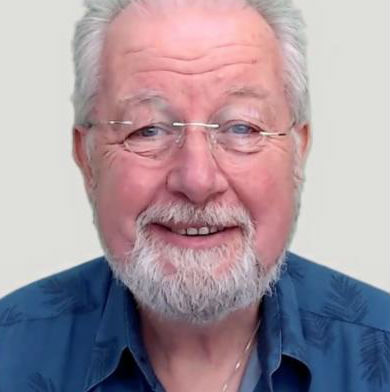
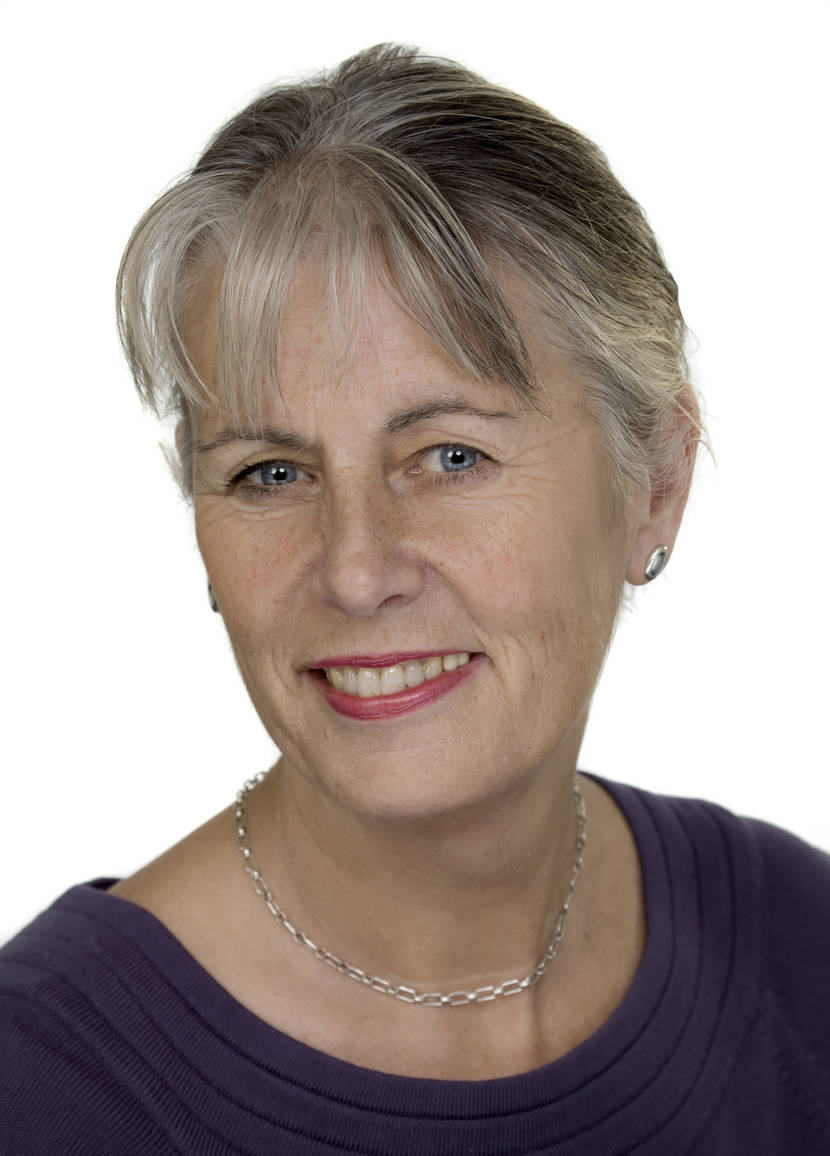
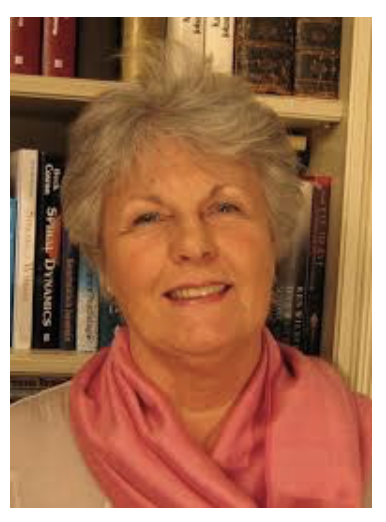


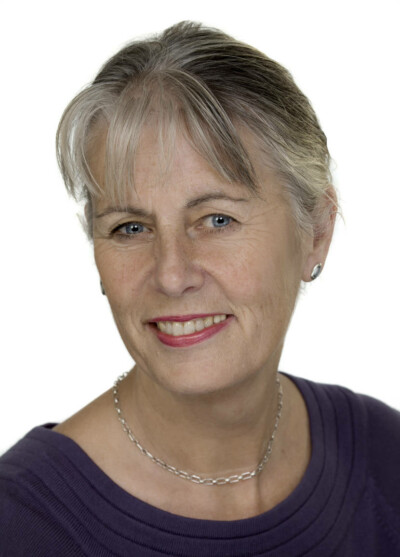


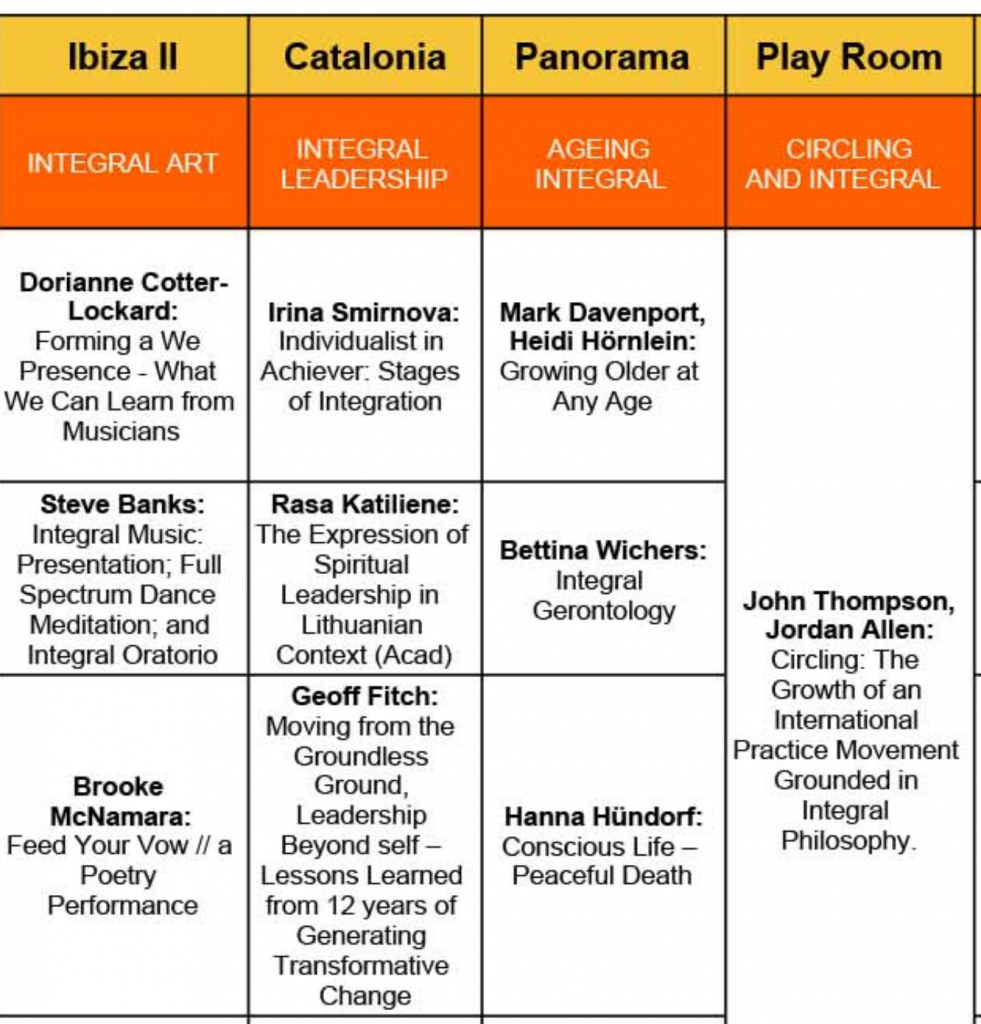
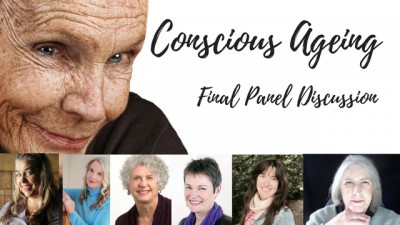
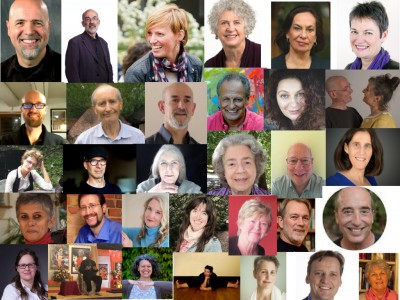

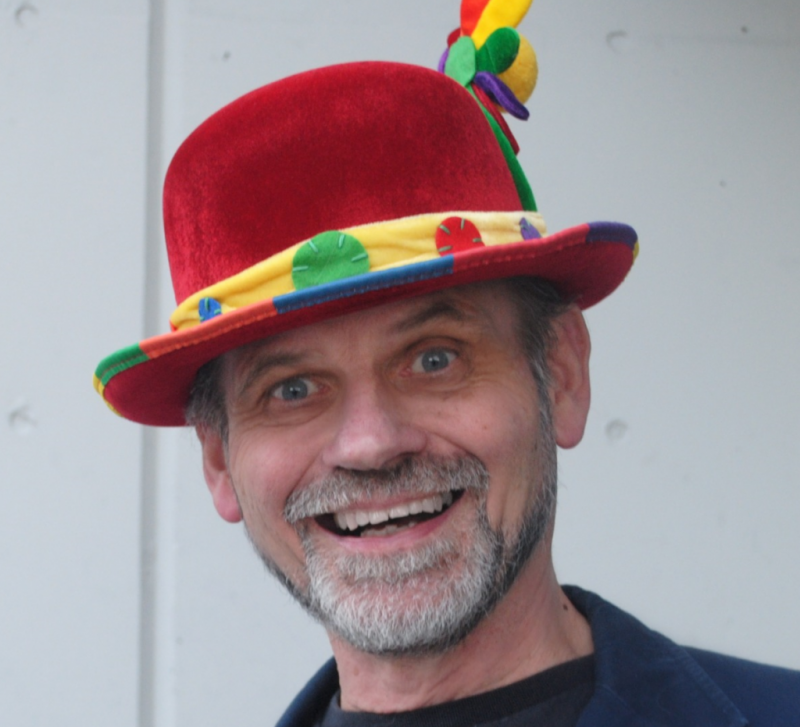
Leave A Comment